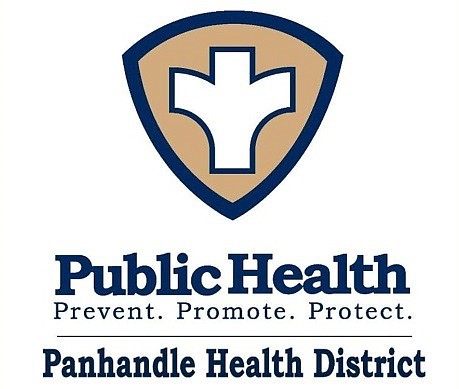PHD in a pandemic: Functions explained
This is a series about COVID-19 preparation and regional updates. Check The Press daily for new information, tips, and ways our health care professionals are working to keep our community safe.
Prior to the COVID-19 pandemic, you may not have known what Panhandle Health District does. Maybe you didn’t even know we existed.
PHD offers a variety of services, but right now we are heavily focused on the COVID-19 pandemic. Our activities are centered around four key areas.
Monitoring
Each confirmed case of COVID-19 is monitored for a recommended period of time while they self-isolate. This is done by our epidemiologists (epis). For each case, there could be several close contacts that our epis also need to monitor. With the 44 current cases in our district, we are monitoring over 600 people. Our epis are working around the clock, seven days a week in this effort.
We don’t use the term “recovered” as that could be misleading because we don’t know at this time if a person can contract COVID-19 more than once. We instead use the term “no longer monitoring.” A person is no longer being monitored when they have stayed home for our recommended period of time and they meet the following conditions:
• You have had no fever for at least 72 hours (that is three full days of no fever without the use of medicine that reduces fevers)
AND
• other symptoms have improved (for example, when your cough or shortness of breath have improved)
AND
• at least 7 days have passed since your symptoms first appeared.
Testing
Another very important aspect of this pandemic is testing. We want to ensure that everyone who meets CDC testing criteria can have a test. Working with our epis and clinical staff, we created a risk assessment algorithm based on CDC guidance. We trained our call center operators to run callers through this assessment. Any callers that fall in the medium to high risk category, are connected with our clinic. Our clinicians assess the patient further over the phone to determine if a test is clinically necessary.
Public Information
It is our duty to keep the public informed throughout this pandemic. Even before we had a confirmed case in our district, we established a call center to answer the many calls we were receiving from our community.
We research and gather information from reliable sources, so our call center operators can properly answer questions or refer callers to resources. The call center has fielded thousands of calls. We expanded our hours after seeing how much demand there was for information.
In partnership with Kootenai Health, we write articles for the Coeur d’Alene Press and Post Falls Press seven days a week. Topics are chosen from questions we hear frequently from our community or updates our community should know regarding COVID-19.
We provide a case count update seven days a week at noon to the media and our COVID-19 page on our website is updated in real-time. Our social media is monitored seven days a week to answer questions, provide information, and listen to our community.
Supply chain
Throughout this process, we are in communication with our health care partners, county emergency managers, care facilities, and many others to assist them with obtaining the supplies they need.
As an example, knowing that our partners’ critical Personal Protective Equipment (PPE) would be depleted, we requested and received much-needed supplies — including N95 masks, surgical gowns, surgical masks, gloves, and face shields — from the Strategic National Stockpile. These supplies have been distributed to various partners throughout the region to ensure they can protect themselves while continuing to provide high-quality health care.
Due to the continued need for PPE, PHD is also working with the Idaho Department of Health and Welfare and the Idaho Office of Emergency Management to obtain additional supplies through the Federal Emergency Management Agency.

